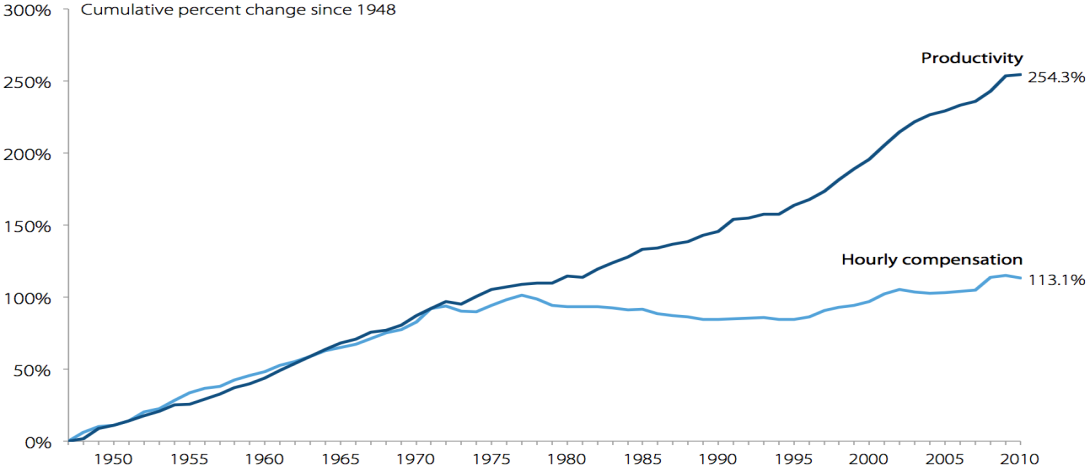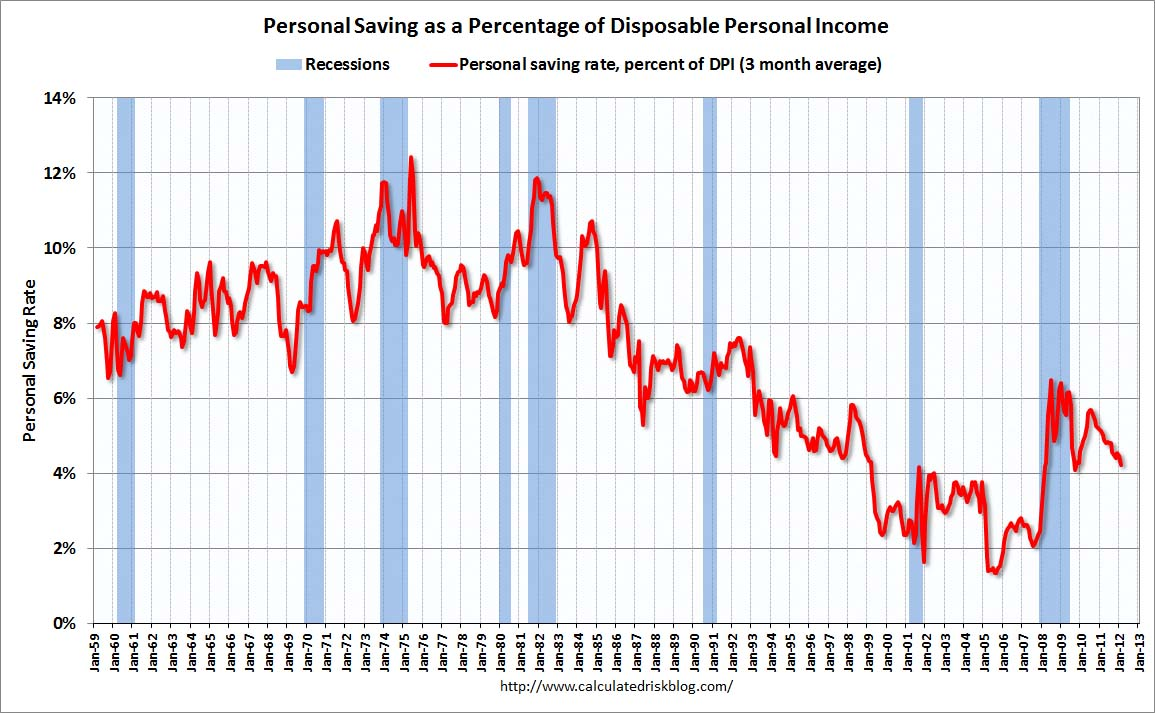Economists Lawrence Mishel and Heidi Shierholz of the labor think tank Economic Policy Institute (EPI) have been asking this question in their latest work that is at the root of our various economic crises:
"Why did the richest 1 percent of Americans receive 56 percent of all the income growth between 1989 and 2007, before the recession began (compared with 16 percent going to the bottom 90 percent of households)? Why are corporate profits 22 percent above their pre-recession level while total corporate sector employees' compensation (reflecting lower employment and meager pay increases) is 3 percent below pre-recession levels?"
The answers have become becoming blindingly obvious in the glare of the Great Recession. A concerted effort by business interests in general, and Republicans in particular, instigated a massive transfer of newly created wealth from wage earners to the owners of capital via various measures, including lowering upper income tax rates, restricting employees collective bargaining, rolling back regulations on financial institutions, and the like.
Such a wealth transfer has caused tremendous harm to our economy and society. The major casualty has been recurring recessions since the 1970s brought on in large part by mountains of debt. In fact, most of that debt was taken out by households with declining incomes who took advantage of increasingly available credit to borrow to make up for their income shortfall.
What created the wealth? A huge increase in labor productivity brought on by information age technologies for the most part. Labor productivity has increased 254 percent since 1948. Hourly wages, however, increased just 113 percent. That can be seen in Figure A from the EPI, which presents both the cumulative growth in productivity per hour worked of the total economy (inclusive of the private sector, government, and nonprofit sector) since 1948 and the cumulative growth in inflation-adjusted hourly compensation for private-sector production/nonsupervisory workers (a group comprising over 80 percent of payroll employment).

Figure A: EPI
That transfer of wealth since the 1970s has been well documented in books such as Jacob Hacker and Paul Pierson's, Winner Take-all Politics that documents the massive lobbying effort by businesses to bring in business-friendly legislation and administrations resulting not only in the ownership of much of Congress, but an extremely conservative, corporate-friendly Supreme Court that in Citizen's United now allows unlimited corporate donations to political campaigns, and so corporate control of two of the three branches of government for years to come.
The other side of that coin is blatant attempts by Republicans to suppress incomes by taking away collective bargaining rights of both private and public sector workers, such as happened in Wisconsin. The result is the almost disappearance of the middle class that has been the main driver of growth since WWII.
Big Business chose to raise their own incomes and that of their shareholders, but not their workers' incomes, in other words. Yet Big Business was more than willing to lend consumers money via Wall Street and relaxed banking regulations, so much so that the personal savings rate dropped to almost zero during the Bush II administration, as the Calculated Risk graph clearly shows after peaking in 1980. Those consecutive recessions -- six since 1973 -- have been a tremendous drag on economic growth, in spite of the productivity increases.

Graph: Calculated Risk
According to the Federal Reserve's Survey of Consumer Finances, the percentage of households holding revolving credit card debt rose from 16 percent in 1970 to 71 percent in 2004.
Essentially, economic policy has not supported good jobs over the last 30 years or so," said EPI. "Rather, the focus has been on policies that were thought to make consumers better off through lower prices: deregulation of industries, privatization of public services, the weakening of labor standards including the minimum wage, erosion of the social safety net, expanding globalization, and the move toward fewer and weaker unions. These policies have served to erode the bargaining power of most workers, widen wage inequality, and deplete access to good jobs. In the last 10 years even workers with a college degree have failed to see any real wage growth.
All this has been part of an even larger trend, the maturing of our economy from industrial to a service-oriented economy dependent mostly on consumer demand, rather than capital investment as in the past. The result has been documented by Rutgers Economic Historian James Livingston. Though most economic activity over the past 100 years is generated by consumer spending, it hasn't benefited most consumers.
This has to change. We can no longer tolerate such a diversion of wealth that has weakened our economic and social fabric so much that we have fallen behind the rest of the developed world in education, health care, aging infrastructure, and even environmental protection.
